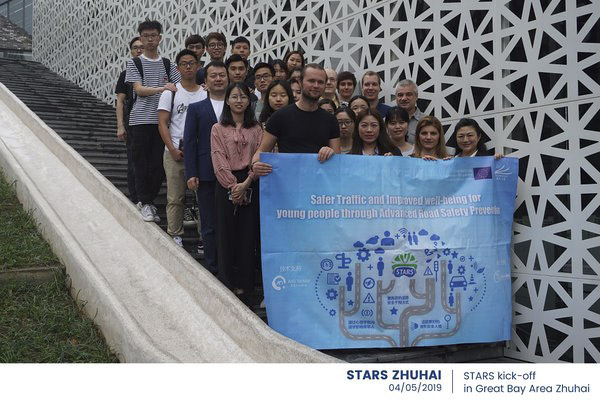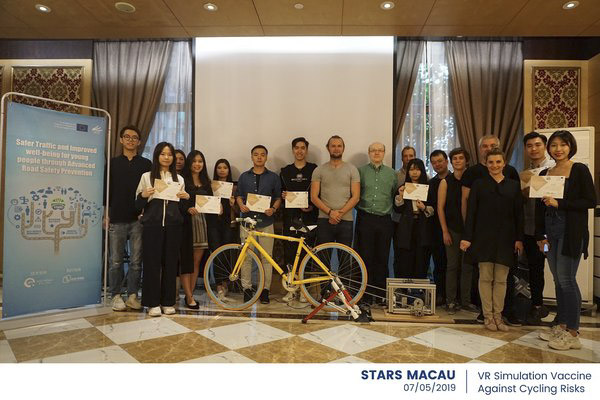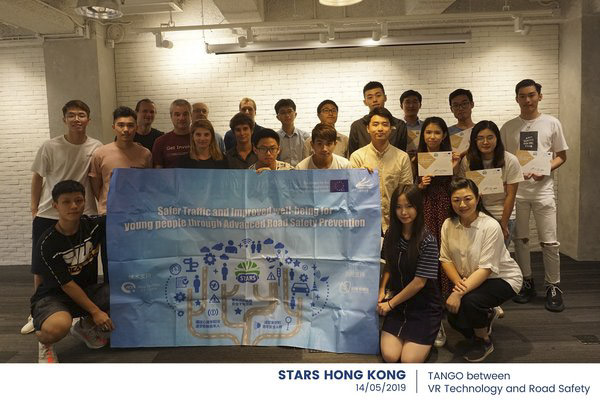Safer Traffic and improved well-being for young people through Advanced Road Safety prevention (STARS)
Project reference : 602194-EPP-1-2018-1-NL-EPPKA2-CBY-ACPALA
 “Road traffic injuries are the eighth leading cause of death globally, and the leading cause of death for young people aged 15–29.” (WHO, 2015).
“Road traffic injuries are the eighth leading cause of death globally, and the leading cause of death for young people aged 15–29.” (WHO, 2015).
The European Commission states “The young people, between 15 and 24 years old, make up 11% of the population but 17% of all road fatalities. This means that the young still face the largest risk in traffic” (Road Safety in European Union, March 2015).
STARS aims to embrace the potential of next generation virtual reality technologies in an effort to address the overrepresentation of young people in road crashes by focusing on a problem of European concern such as young people’s drink/drug-cycling behaviour.
Cycling is considered a safer mode of transport and thus generally regarded as one of the solutions of the global road safety problem. However, the reality is different than the social perception. Cyclists killed represent 6% of all road deaths (ETSC 2013) across the European Union (EU) and form an integral part of the « vulnerable road users » group. This group makes up 50% of road traffic deaths in South East Asia: in some countries this figure rises to over 80% (WHO, 2015). Cycling in particular is associated with greater injury severity (Spaite et al., 1995) with alcohol as a major contributor (SWOV, 2013). In the Netherlands for example a relatively large proportion of all accidents, 22%, involve bicyclists as the injured parties and the reported proportion of young bicyclists (18 to 24) admitted to hospitals who have been drinking is increasing from 24% in 1993 to 58% in 2008 (SWOV, 2013).
The STARS consortium is composed of two networks of key road safety organizations, one in Europe and one is South East Asia. STARS will use the experience, gained in the Netherlands through the « 3D tripping bike » project: a powerful education method using virtual reality. The project will offer to the young people to experience « what it’s like to cycle whilst drunk, on Ecstasy, high on Cannabis and tripping on Magic Mushrooms ».
To achieve that the STARS consortium intends to turn young road safety volunteers into multipliers that encourage safe cycling of other young people in a new Joint International bicycle safety campaign. Cyclist safety working groups will be the vector for institutional and policy dissemination. A set of youth workers’ mobilities will provide International credibility of this effort.
The STARS output will be 12 local implementations of the Joint International bicycle safety campaign involving 2400 direct participants, 18 trained youth workers, 30 trained volunteers, 12 youth workers’ mobilities, 12 CSWG meetings, 300 participants in 6 Safe bicycle riding national conferences, 12 in the Final project meeting, 12 000 people through information materials and 600 000 reached through conventional and social media (target being to involve at least one TV, one radio and one newspaper in project activities per country).



